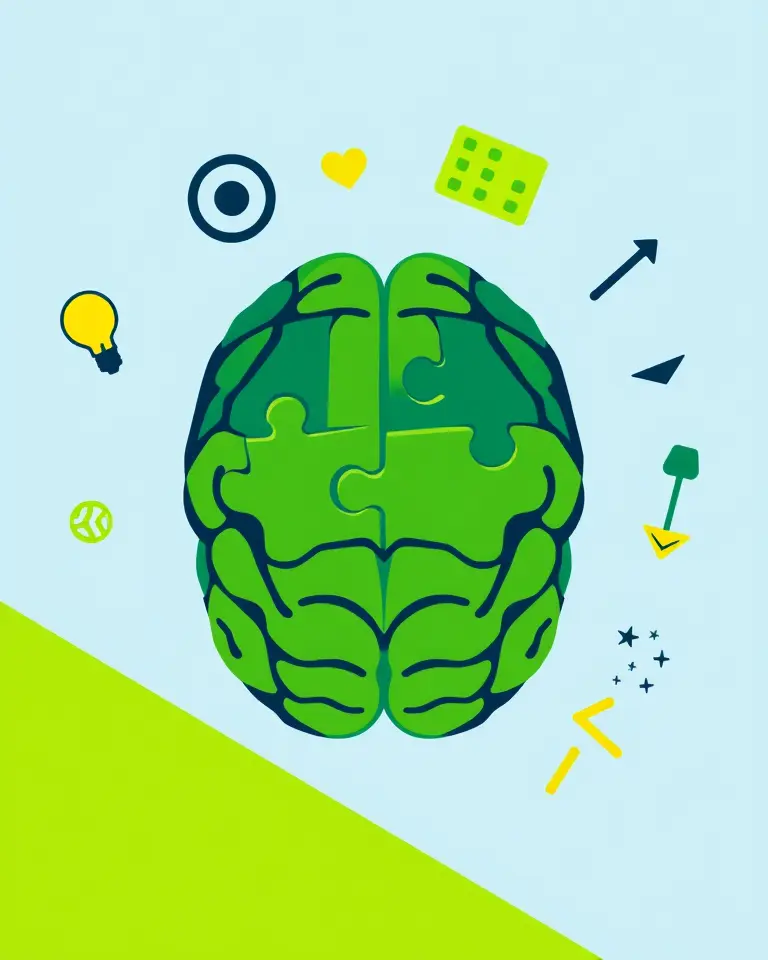In today’s fast-paced world, maintaining mental fitness is just as crucial as physical health. It’s not merely about the absence of mental illness but about cultivating a resilient and sharp mind that can navigate life’s challenges effectively. Just like physical exercise strengthens the body, specific practices and lifestyle adjustments can significantly boost mental well-being, fostering clarity, emotional balance, and overall psychological resilience.
Understanding Mental Fitness
Mental fitness refers to the state of psychological well-being where an individual possesses a sharp mind, balanced emotions, and an adaptive approach to challenges. It’s about cultivating attributes like focus, clarity, creativity, resilience, and emotional balance, rather than just addressing mental health conditions. Embracing mental fitness equips us to better handle stress, build stronger relationships, and enjoy life more fully.
Key Components of Mental Fitness
Just as physical fitness has various components like cardiovascular endurance and strength, mental fitness also encompasses multiple elements:
- Emotional Intelligence: Understanding and managing your emotions and those of others. This includes self-awareness, self-regulation, and empathy.
- Resilience: The ability to recover from setbacks and adapt to challenges. It involves coping strategies and viewing challenges as opportunities for growth.
- Social Connections: Having a strong support network and feeling connected to others. Meaningful relationships provide companionship, inclusion, and enrichment.
- Financial Well-being: Feeling in control of your finances and having low stress related to money.
- Physical Health: A healthy body supports a healthy mind. Regular exercise, proper nutrition, and sufficient sleep are crucial for mental fitness.
Proven Strategies to Boost Mental Fitness
There are several evidence-based strategies you can incorporate into your daily routine to enhance your mental fitness:
1. Mindful Meditation and Relaxation
- The Practice: Mindfulness involves paying attention to the present moment without judgment. Meditation can calm the mind, reduce stress, and increase self-awareness. Start with just 5 minutes a day, focusing on your breath and letting thoughts come and go. Relaxation techniques like deep breathing exercises, yoga, or tai chi can also help manage stress.
- The Science: Studies show that mindfulness meditation can change the structure of the brain, improving areas linked to focus, memory, and emotional regulation.
2. Physical Activity
- The Practice: Incorporate at least 30 minutes of moderate exercise like walking, cycling, or swimming daily. Muscle-strengthening activities should also be included twice a week.
- The Science: Exercise is not just good for the body; it improves mental well-being by reducing anxiety, stress, depression, and negative moods. It also increases the size of the hippocampus, a brain area involved in memory and learning, and releases endorphins, which are natural mood lifters.
3. Prioritizing Sleep
- The Practice: Aim for 7-9 hours of quality sleep each night. Establish a regular sleep schedule and create a relaxing bedtime routine.
- The Science: Sleep is vital for both mental and physical health, helping us recover from mental and physical exhaustion.
4. Healthy Eating
- The Practice: A balanced diet rich in fruits, vegetables, lean protein, and whole grains can positively impact mental health. Focus on foods that support brain health.
- The Science: Diet directly influences brain chemistry and function. A nutritious diet is associated with reduced symptoms of depression and anxiety.
5. Time in Nature
- The Practice: Take daily walks in parks, gardens, or any green space. Even a few minutes spent outdoors can make a difference.
- The Science: Being in nature reduces anxiety and boosts mood. Research shows it lowers levels of cortisol, a stress hormone, and enhances a sense of well-being.
6. Social Connections
- The Practice: Maintain and deepen close friendships and relationships. Make time for meaningful conversations, and seek support when needed. Engage in activities with others and offer support in return.
- The Science: Human connection is vital for mental wellness. Social support provides a buffer against stress and promotes feelings of belonging.
7. Lifelong Learning
- The Practice: Challenge your mind through continuous learning. Pick up new hobbies, pursue further education, or engage in brain-stimulating activities like puzzles and brain teasers.
- The Science: Learning keeps cognitive abilities sharp and enhances overall mental fitness.
8. Gratitude and Positivity
- The Practice: Make it a point to list the things in your life you are grateful for. Focus on positive aspects and challenge negative thoughts.
- The Science: Practicing gratitude can shift your mindset toward positivity and improve overall well-being.
9. Stress Management
- The Practice: Recognize stressors and develop effective coping strategies. Set priorities, manage your time well, and learn to say no to new tasks when you feel overwhelmed.
- The Science: Managing stress prevents it from having a negative impact on your mental health and improves your ability to cope with challenges.
10. Journaling
- The Practice: Write down your thoughts and emotions, especially during stressful times.
- The Science: Journaling can help you prioritize problems, fears, and concerns and help you recognize triggers and learn how to better control them.
11. Seeking Help
- The Practice: Talk to a mental health professional if you feel unable to cope, have suicidal thoughts, or use drugs or alcohol to cope. Don’t hesitate to seek support when you need it.
- The Science: Early intervention can significantly improve mental health outcomes.
Integrating Mental Fitness into Your Life
- Start Small: Begin with one or two strategies and gradually incorporate more as you feel comfortable.
- Be Consistent: Regular practice is more effective than sporadic efforts.
- Be Patient: It takes time to see the benefits of these practices, so don’t get discouraged if you don’t see results immediately.
- Find What Works For You: What works for one person might not work for another. Experiment with different approaches to find what suits your needs.
- Make it a Habit: Integrate mental fitness into your daily routine just like brushing your teeth or having a meal.
Mental Fitness: A Journey, Not a Destination
Maintaining mental fitness is an ongoing process that requires dedication and self-awareness. It’s about proactively nurturing your psychological well-being, not just reacting to mental health issues. By incorporating these strategies into your daily life, you can build a strong foundation for mental resilience, improved emotional health, and a more fulfilling life. Remember that mental fitness is not a one-size-fits-all concept. Tailor these components to your unique needs and circumstances to create a plan that works best for you.







